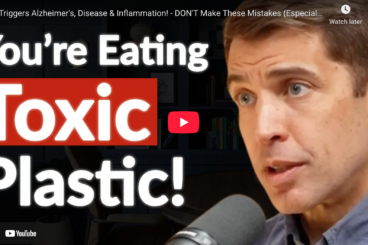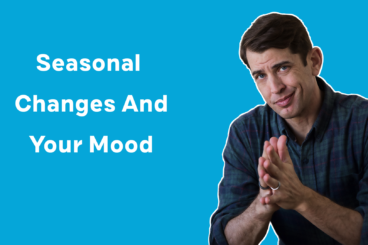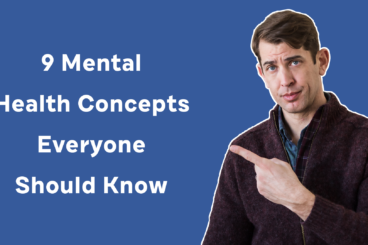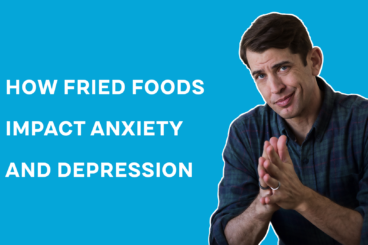Table of Contents
Bio-psycho-social model
How do we know if we’re depressed? I’ve been treating depression for over 20 years. It’s one of the most common and most disabling medical conditions in the world. It’s the top cause of disability. There are a lot of different factors that play into depression. That’s one of the reasons this question sometimes is really hard to figure out in psychiatry. We use what’s called a bio-psycho-social model. We’re looking at biology, understanding how that affects your mood. We’re looking at your personal psychology. And then we’re looking at the social factors, things like oppression, trauma, things that that could influence and, and lead to a depression.
Main symptoms
There are two symptoms that are used to diagnose depression. The first is low mood. So what does that actually mean? It means that you feel down and when you wake up, you’re just not looking forward to the day. There’s a lot of pessimism and not lot of hopefulness. You’re not excited about things.
The second symptom that has to be there is anhedonia. It’s a big word. That just means a loss of pleasure. You not enjoying things as much as you used to. Just think about one of your favorite activities. If you do that, and it doesn’t really spark any joy in you, it’s a signal that you have some anhedonia. I often see that people experience this first in their relationships. They just aren’t really enjoying them as more, obviously a lot of reasons that can go into that, but sometimes it’s depression.
Surprising symptoms
Let’s talk about some of the other symptoms that sometimes surprise people. Depression has a lot of biological symptoms. There’s often a disturbance in sleep. This is one of the most common symptoms. People have either have problems falling asleep and staying asleep or they’re sleepy and having a hard time focusing and staying awake at all times.
Another common symptom is a change in appetite. People can both have an increase in appetite or decrease in appetite. With the change in appetite comes some weight gain or weight loss. Carbohydrate craving is often very common in depression.
There’s also a common symptom of increased tearfulness. So if you’re having some of these symptoms, it’s possible that you have depression.
I want to mention another symptom that’s quite serious and concerning, which is having suicidal thoughts. These are pretty common in depression. You don’t have to be actively thinking about suicide to have suicidal thoughts. Sometimes I hear a lot from patients thoughts of not really wanting to be here anymore, not wanting to be around or feeling like a burden on people. If you’re having any of those thoughts or if you’re actively planning any act or, or having thoughts about taking your life. This is an indicator to get help right away.
What does it come from?
Those are some of the symptoms of depression. Where does depression come from? It comes from a lot of different places. It can be due to medical conditions. It can occur after pregnancy. Grief and trauma are highly correlated with depression as well as substance use.
It’s all about functioning
So if any of those categories apply to you and you’re having a lot of those symptoms, how do you know if you’re depressed? Well, the way we really like to think about this in clinical practice is around your functioning. That being said, I’ve treated a lot of people with depression who are functioning really well. They’re going through the motions. They’re finishing their work. They’re engaged in their relationships, but on the inside, they’re really struggling and have depression.
For most people though, functioning goes down. You’re just not able to be your best self. You’re not able to get work done or to be as creative in your interpersonal relationships. You’re not as present. You’re not as engaged. You’ll find yourself more isolated often with depression. If you’re seeing your functioning decrease in terms of work and love this could be a sign. It goes all the way back to Freud. Freud said psychoanalysis was a treatment that cures problems of work and love. Today in the DSM-5 which is our diagnostic Bible in psychiatry, all of the diagnoses end with this idea that these symptoms are severe and they cause a problem with your functioning.
So if you’re having any of the symptoms that I’ve mentioned, the diagnostic criteria says for two weeks, but even if you’ve been having them for a short amount of time, or for months, I hope this helps you think about whether you have depression.
I find so many people have some of these symptoms, have a bit of depression and they don’t ever seek treatment. Treatment can be with a professional like me or my team. It can also be by engaging in activities in your life, in your community, that just help perk up your mood and help you feel better. Depression has a lot of causes and it also has a lot of treatments. I hope this is encouragement to take a step in taking care of whatever symptoms you’re struggling with.




Very good information. Thanks for offering on this website. Everyone can benefit from healthy eating habits.